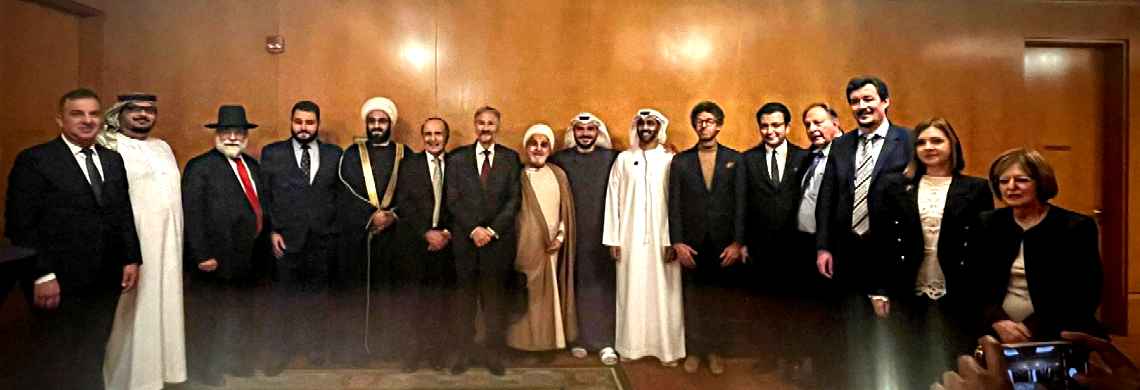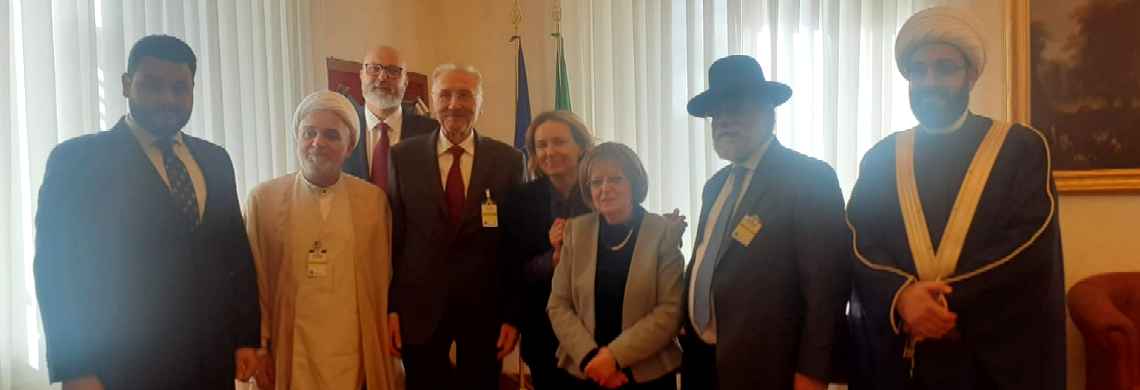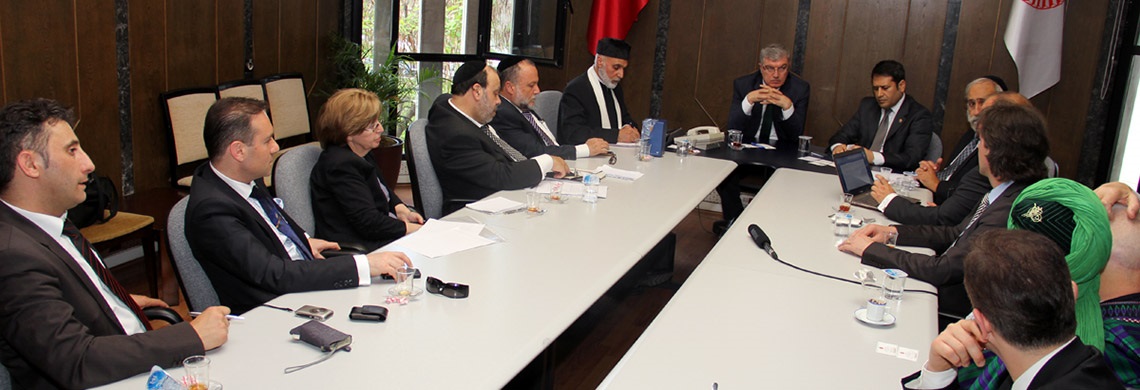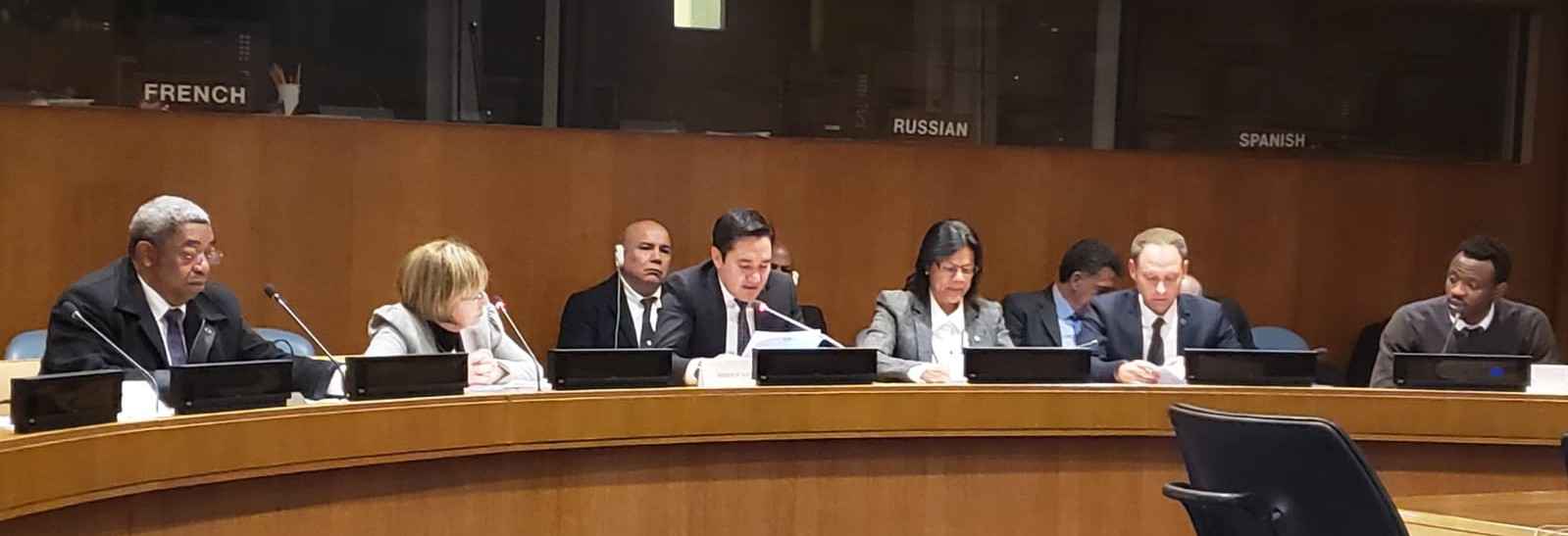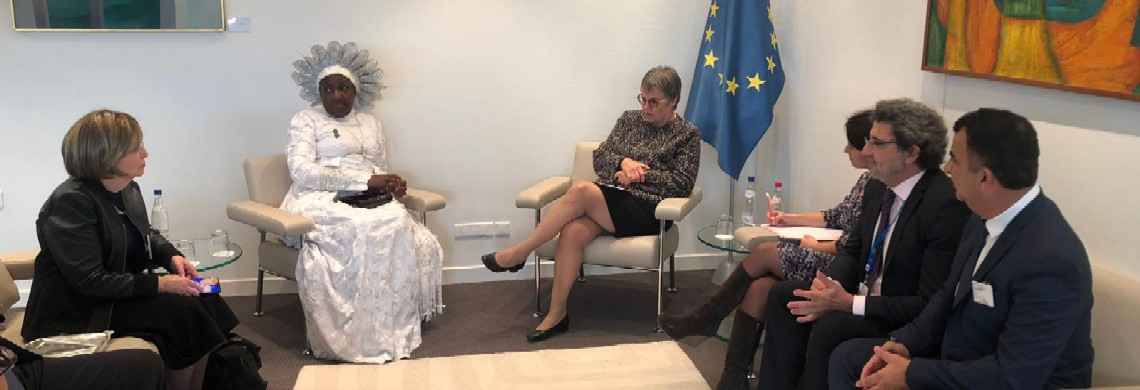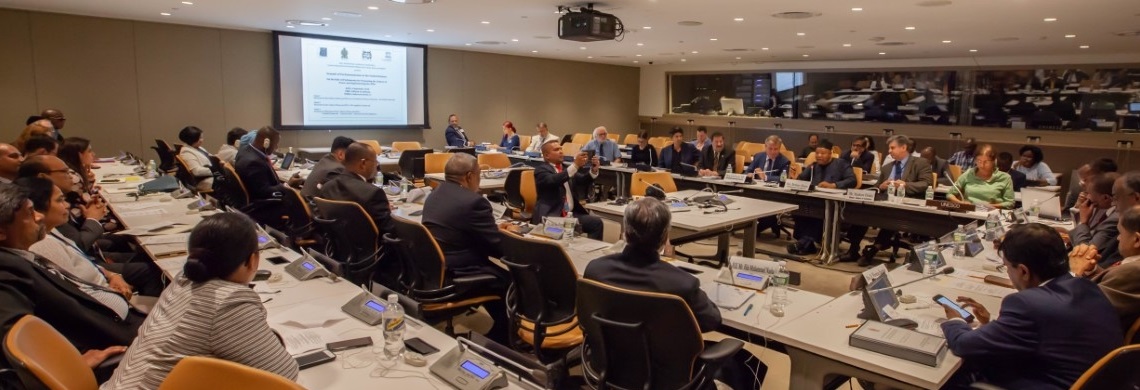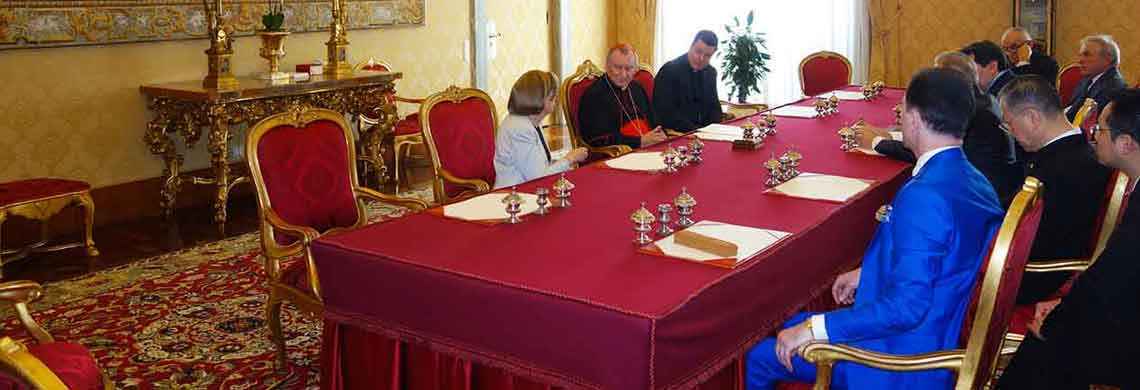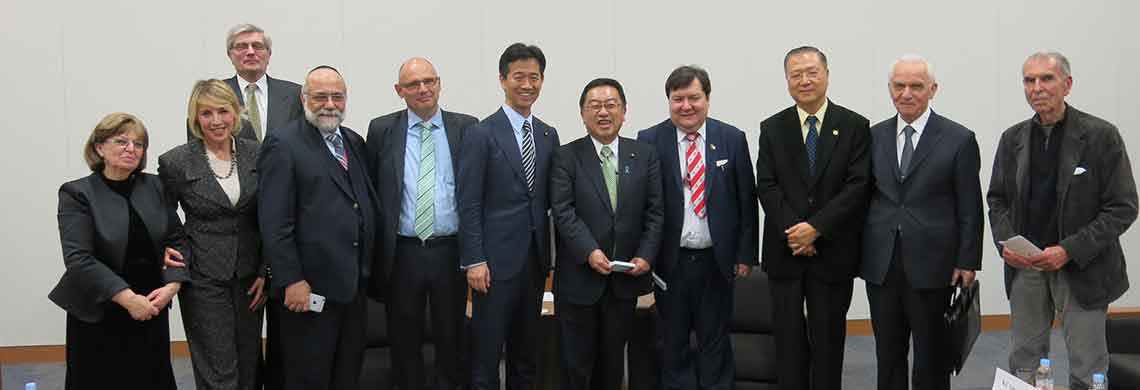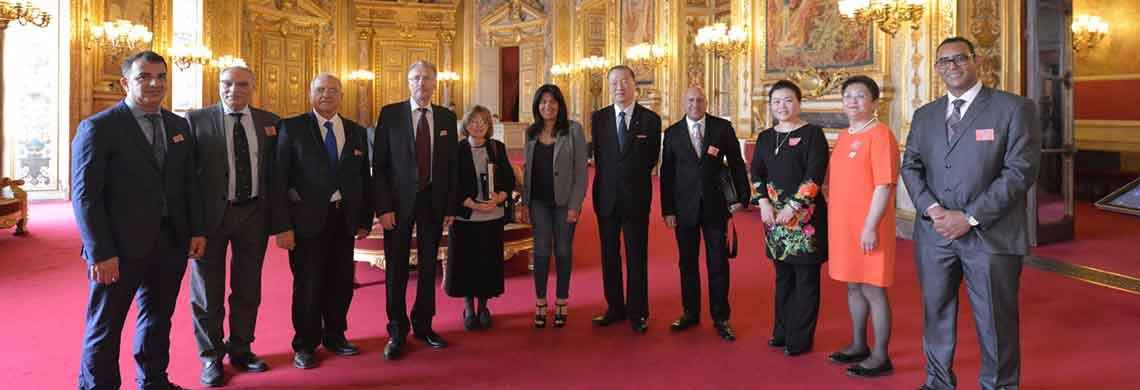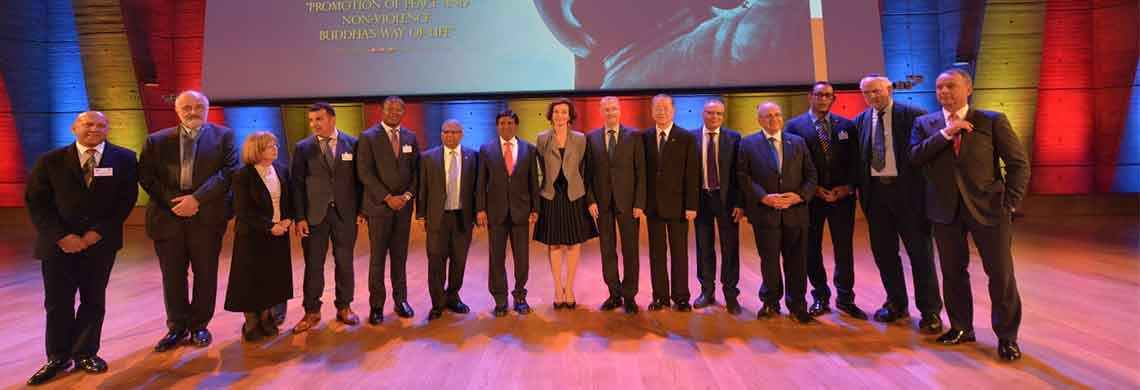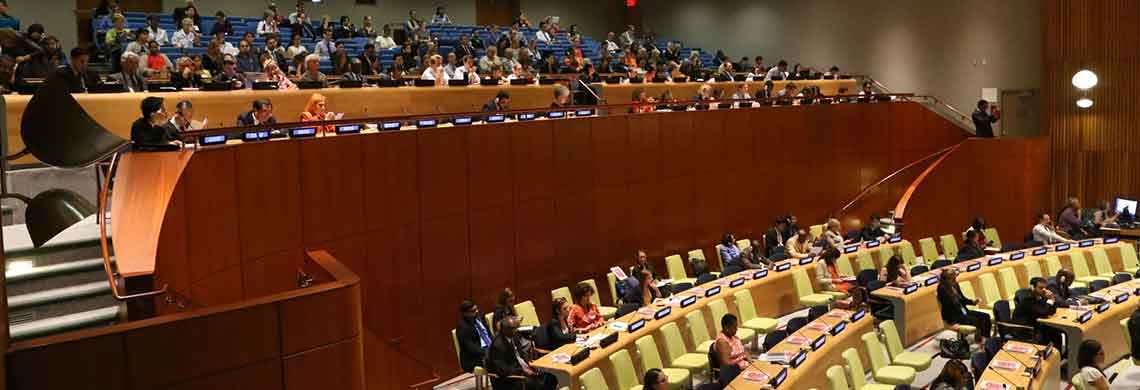MAY 20TH MEETING AT EUROPEAN PARLIAMENT


Strategies to combat radicalism in the Middle East and around the globe through education for tolerance and a culture of peace
European Parliament
Room ASP 5E3
Tuesday, 20 May 2025
3pm-5pm
Agenda
Strategies to Combat Radicalism in the Middle East and Around the Globe through Education for Tolerance and a Culture of Peace
Location: European Parliament, Room ASP 5E3Time: Tuesday, 20 May 2025, 3:00 PM – 5:00 PM
Welcome Remarks
- HE Mohamed Al Sahlawi, Ambassador of the United Arab Emirates to the Kingdom of Belgium, Grand Duchy of Luxembourg, and the European Union
- MEP Antonio Lopez-Isturiz White, Member of the Committee on Foreign Affairs (EPP)
- Mrs. Shoshana Bekerman, Director, Inter-Parliamentary Coalition for Global Ethics (IPCGE)
Keynote Speeches
- HE Dr. Khalid al Ghaith, Secretary General, Higher Committee of Human Fraternity
- HE Ahmed bin Mohammad Al Jarwan, President, Global Council for Tolerance and Peace
- Dr. Mohammed Abdulla Al Ali, CEO, Trends Advisory and Research
Inputs from Experts
- HE Haim Regev, Ambassador of Israel to the European Union and NATO
- MP Nancy Khedouri, Member of the National Assembly, Bahrain (video message)
- Loay Al Sharif, UAE-based Saudi Arabian peace activist (video message)
- Prof. Dr. Emil Constantinescu, President of Romania (1996–2000)
- Francisco Gaztelu, Director, Directorate General for the Middle East, North Africa, and the Gulf, DG MENA, European Commission
- Imam Mohammad Tawhidi, Vice-President, Global Imams Council
- Chief Rabbi Yitzhak Dayan, Deputy Chairman, Permanent Committee of the Conference of European Rabbis
- Mrs. Tena Misetic, Head of Cabinet of Mrs. Dubravka Suica, European Commissioner for the Mediterranean
- MEP Loucas Fourlas, European People's Party
- Dr. Mohd Herizal bin Hazri, Higher Committee of Human Fraternity
- Pastor Tunji Adebayo (video message)
- Sir Liam Fox, Chairman, Abraham Accords Institute, United Kingdom (video message)
- MEP Assita Kanko, Vice-Chair, European Conservative and Reformists Group
- Adbulkarim Dandashi, Director, Global Partners for Peace and Security in the Middle East
- Abdulla Al Manai, Director-General, King Hamad Global Centre for Peaceful and Coexistence
- Dr. Freddy Avni, IPCGE Youth Education Initiatives
- Elaiza Al Hosani, Research and Deputy Head of Media Sector, Trends Advisory and Research
- Shaikha Obaid Al Nuaimi, Researcher, Trends Advisory and Research
- MEP Andrey Kovatchev, European People's Party (TBC)
Closing Remarks
- MEP Antonio Lopez-Isturiz White, Member of the Committee on Foreign Affairs (EPP)
Additional Participants
- Humaid Almansoori, Embassy of the United Arab Emirates to the Kingdom of Belgium, Grand Duchy of Luxembourg, and the European Union
- Andrea Cucchini, Embassy of Israel to the European Union and NATO
- Dr. Luis Blanco, Head of Cabinet of MEP Antonio Lopez-Isturiz White
- Natalie Tegelberg, Head of Cabinet of MEP Alice Teodorescu Mawe
- Gregor Nageli, Advisor to MEP Hildegard Bentele, Head of the Delegation for Relations with Israel
- Maria Maseda, Advisor to MEP Francisco Millan Mon
- Bilyana Mircheva, Advisor to MEP Andrey Kovatchev
- Isabel Camps, Advisor to MEP Antonio Lopez-Isturiz White
Organized by the Inter-Parliamentary Coalition for Global Ethics (IPCGE)
Concept and Background:
The growing global threat of radicalism, violent extremism, and cultural polarization continued to challenge efforts for international peace and security. While military, legal, and security responses played a vital role, there was increasing recognition that sustainable peace had to be rooted in education, cultural understanding, and the shared ethical values of humanity. Building on the United Nations Sustainable Development Goal 16, which promotes peaceful and inclusive societies, and in light of UN General Assembly resolutions on the Culture of Peace and Interreligious and Intercultural Dialogue, this high-level meeting convened international stakeholders to advance strategies for combating radicalism through education for tolerance and a culture of peace.Hosted by the European Parliament in collaboration with the Inter-Parliamentary Coalition for Global Ethics (IPCGE), the Global Council for Tolerance and Peace, the Higher Committee of Human Fraternity, and TRENDS Research and Advisory, the roundtable brought together parliamentarians, diplomats, religious and civil society leaders to chart collaborative responses. It emphasized the transformative role of ethical education, interfaith cooperation, and grassroots peacebuilding as foundational pillars in countering hatred and extremism.
This meeting formed part of a broader IPCGE-led initiative that traced its roots to the 2016 High-Level Panel and the 2018 Summit of Parliamentarians at the United Nations, and followed milestone declarations issued in Rome, Paris, and New York. These declarations affirmed the need for global legislative and civic frameworks that uphold the sanctity of human dignity, support inclusive development, and promote interreligious solidarity.
By convening this strategic dialogue in the heart of Europe, the European Parliament reaffirmed its commitment to partnering with global actors—including the United Arab Emirates, Israel, Bahrain, and faith leaders from Judaism, Christianity, and Islam—to develop joint educational initiatives that confronted narratives of violence with narratives of fraternity.
In the spirit of the UN's call for a Decade of Interreligious and Intercultural Dialogue, and inspired by the vision of transforming swords into plowshares, the event contributed concrete policy recommendations and educational models. These aimed not only to safeguard future generations from radicalism but to empower them with the tools to build bridges across faiths, cultures, and nations.
As wars begin in the minds of men, so too must the defenses of peace be constructed there—through education, mutual respect, and a shared moral heritage that transcends borders and ideologies.
Summary Statement
Conference on Combating Radicalism through Education for Tolerance and PeaceOn May 20th 2025, the Interparliamentary Coalition for Global Ethics (IPCGE) hosted a pivotal conference at the European Parliament in Brussels titled Strategies to Combat Radicalism in the Middle East and Around the Globe Through Education for Tolerance and a Culture of Peace.
The event, attended by a significant UAE contingent, brought together policymakers, educators, and religious leaders to address the global rise of radicalisation through values-based education.
Key themes included fostering tolerance, critical thinking, and mutual respect in curricula to counter extremist narratives, with a focus on the Middle East and Europe.
Speakers, including Antonio López-Istúriz White MEP, who chaired the session, emphasised that security begins in classrooms where critical thinking is nurtured, noting growing radicalisation in Europe.
Shoshana Bekerman of IPCGE proposed a model curriculum inspired by the UAE’s tolerance-focused education, advocating for online accessibility and conditional aid to Palestinians based on Israel’s recognition.
Dr. Khalid al Ghaith and Dr. Mohd Herizal bin Hazri of the Higher Committee on Human Fraternity highlighted the UAE’s Abrahamic Family House and the need for ethics-driven curricula to address youth disconnection, citing OECD’s PISA 2018 findings that one in three high-income students feels they do not belong.
Ahmed bin Mohammad Al Jarwan of the Global Council for Tolerance and Peace explained their MA program in Tolerance and Peace to study regional conflicts.
Dr. Mohammed Abdulla Al Ali, Elaiza Al Hosani, and Shaikha Obaid Al Nuaimi of TRENDS Research & Advisory praised the UAE’s Ministry of Tolerance and Coexistence as a replicable model to counter groups like the Muslim Brotherhood, emphasising empathy and dialogue.
Israel’s Ambassador to the EU and NATO, Haim Regev, underscored the UAE and Morocco as exemplars of moderate Islam, urging conditional funding for Palestinian education reform.
Tena Mišetić, representing European Commissioner Dubravka Suica, highlighted EC efforts in Lebanon and Palestinian Territories to align textbooks with UNESCO standards, stressing international cooperation.
Imam Mohammad Tawhidi from the Global Imams Council, known as the Imam of Peace, called for a global coalition to develop values-based curricula endorsed by religious leaders, remove extremist content, and counter online radicalisation, particularly from groups like the Muslim Brotherhood.
Francisco Gaztelu of DG MENA and Gulf noted that radicalisation stems from poor or absent education, reinforcing the need for systemic reform.
The conference underscored the UAE’s leadership in promoting tolerance through education, with initiatives like the Sawab Centre and Hedayah Centre cited as global models for countering extremism.
Proposals included:
- an international task force for deradicalisation,
- a counter-propaganda program,
- a globally accessible curriculum to foster peace and combat extremist ideologies, particularly among youth exposed to divisive online narratives.
IMPAC, which last year published a research report on radicalising tendencies in Belgian school materials, wholeheartedly supports the event’s vision of countering radicalisation through values-based education that fosters tolerance and critical thinking.
We extend our deepest gratitude to the UAE for their exemplary leadership, particularly through initiatives like the Ministry of Tolerance and Coexistence and the Abrahamic Family House, which serve as global models for promoting peace and empathy.
IMPAC looks forward to forging partnerships, especially with UAE stakeholders, to develop a deradicalising curriculum emphasising analytical reasoning and critical thinking, empowering youth to navigate complex narratives and build a more inclusive, peaceful future.
Nigel Goodrich
General Secretary, IMPAC aisbl
nigel@im-pac.org
Article published by Tribune.gr
Photo caption: Nigel Goodrich (left) with the Imam of Peace, Mohammad Tawhidi.





